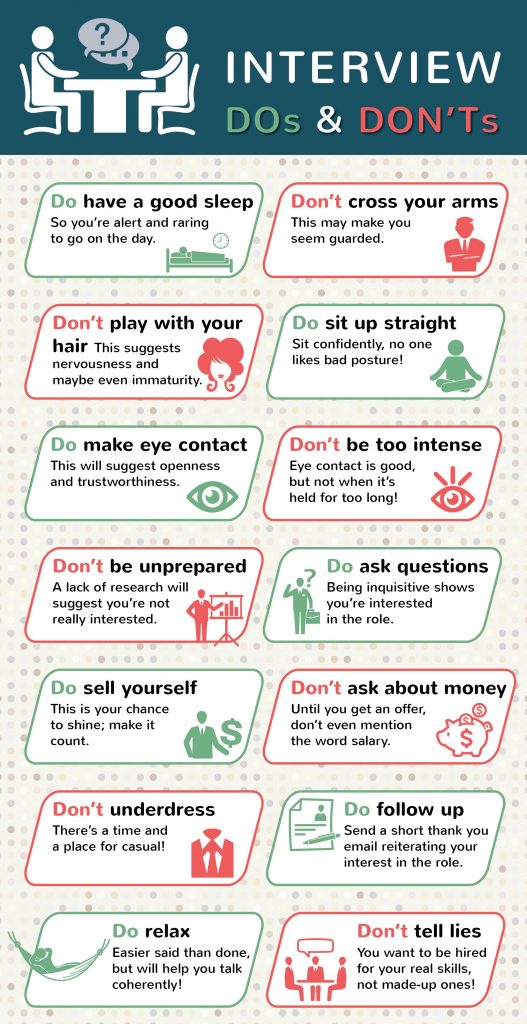Engineering has always been a field of innovation and evolution, offering exciting opportunities for those who choose it as a career path. As a fresh graduate or a college student,…

Top 10 Do’s and Don’ts For Your First Job
Looking for a new job can be a daunting task, especially if you’re a fresher. There are so many factors to consider, from the type of job you want to the company you want to work for. And with so much competition out there, it can be hard to stand out from the crowd.
But don’t worry, we’re here to help. In this article, we’ll share some of the most important do’s and don’ts to follow when searching for a new job. Whether you’re a recent graduate or you’re just looking for a change, these tips will help you land the job you want.
Do’s and Don’ts to Follow in Workplace
Following the below-mentioned do’s and don’ts will help you increase your chances of landing the job you want. So what are you waiting for?
Start your job search with Naukri Campus today!
Do’s to Follow in Career

- Define Your Priorities and Goals: Before beginning your job search, take some time to consider your career priorities and goals. Think about the short and long-term goals. To determine the sort of employment and sector that best suits your goals, take into account your interests, abilities, and beliefs. You may direct your efforts toward possibilities that best suit you by using self-evaluation.
- Create a Powerful Online Presence: In the current digital era, a powerful online presence is essential. Create a polished LinkedIn profile that highlights your abilities, experiences, and accomplishments. Make sure it is updated. Consider creating a personal website or portfolio to display your work or projects as well. This online presence will make it easier for prospective employers to view your profile and better understand your skills.
- Personalize Your Cover Letter and Resume: Create a resume and cover letter specifically for each job application. The accomplishments, experiences, and talents that are most pertinent to the needs of the position should be highlighted. Highlight your extracurricular activities, internships, and academic accomplishments that show how you have developed transferrable skills. Make sure your writing is concise and clear, then proofread it. You can easily create a professional resume with the help of the Naukri Campus Free Online Resume Maker tool in a few seconds
- Network and seek referrals: When looking for a career, networking is a vital resource. To grow your professional network, go to industry events, job fairs, and career-related courses. Make contact with experts in your area of interest and ask for guidance or mentoring. Make inquiries about job vacancies and possible references from friends, family, and instructors. Your chances of being recognized by companies and given serious consideration for a position might be greatly increased through referrals.
- Practice Your Interviewing Techniques: Interviews may be nerve-wracking, particularly for fresh hires with no prior experience. To gain confidence and refine your answers, practice common job interview questions with a friend or mentor. Additionally, be prepared to ask the interviewer questions because doing so demonstrates your sincere interest in the job and desire to find out more about the organization. In order to help freshers succeed in their interviews, you may also use PIQA tool (Personal Interview Question Answers), an amazing tool by Naukri Campus for interview preparation.
The Don’ts
- Don’t Limit Your Options: While having clear professional objectives is important, try to avoid limiting oneself to a single sector of employment or profession. As a fresher, you could find new possibilities and interests as you acquire experience. Keep an open mind and be willing to try new things.
- Avoid Applying to Irrelevant Jobs: Sending out a flood of job applications without taking into account the position’s needs and qualifications is futile. Prioritise quality over quantity and only apply for jobs that fit your qualifications and professional aspirations.
- Don’t Exaggerate or Lie on Your Resume: Avoid lying or exaggerating on your resume since employers can quickly check any statements you make about your accomplishments or abilities. A ruined reputation and exclusion from the employment process might result from dishonesty.
- Don’t Skip Interview Preparation: Skipping interview preparation might reduce your likelihood of landing the job. Analyse frequently asked interview questions, prepare answers, and practice your body language and tone. Being unprepared may give the impression that you are uninterested or unprofessional.
- Don’t Be Discouraged by Rejections: Rejection is a part of the job search process, which can be stressful. Don’t let it discourage you. Rejections shouldn’t demoralize you; rather, you should see them as chances to grow and learn. Keep an optimistic outlook while honing your abilities and job-hunting strategies.
While looking for a new job as a fresher might be challenging, you can make the process go more smoothly by adhering to the dos and avoiding the don’ts listed in this article. Define your career objectives, write a strong ATS Friendly Resume, use your network, and hone your interviewing skills.
Keep in mind that if you persevere and adopt the appropriate plan, the ideal chance will present itself. We wish you success in finding a job!
FAQs on Do’s and Don’ts For a New Job
What should I wear on my first day?
Check the company dress code beforehand. When in doubt, opt for business casual or slightly more formal attire. It’s better to be overdressed than underdressed.
How early should I arrive on my first day?
Aim to arrive 15-20 minutes early. This allows time for unexpected delays and shows your enthusiasm and punctuality.
What should I bring on my first day?
Bring a notebook, pen, ID, any requested documents, and a positive attitude. Consider packing a lunch in case you don’t have time to buy one.
How can I make a good impression on my coworkers?
Be friendly, introduce yourself, show interest in others, offer help when possible, and maintain a positive attitude. Active listening and remembering names are also important.
What if I make a mistake in my first week?
Don’t panic. Own up to the mistake, learn from it, and ask for guidance on how to correct it. Everyone makes mistakes, especially when starting a new job.
How do I handle not knowing how to do something?
It’s okay not to know everything. Ask questions, seek clarification, and don’t be afraid to request help or training when needed. Your colleagues expect you to be learning.
Should I stay late to finish work?
While showing dedication is good, consistently working late isn’t sustainable. Prioritize tasks, communicate with your supervisor, and maintain a healthy work-life balance.
How do I deal with office politics?
Stay neutral, avoid gossip, focus on your work, and maintain professional relationships with everyone. Don’t get involved in conflicts between colleagues.
When is it appropriate to ask for more responsibilities?
Once you’ve mastered your current tasks and consistently meet expectations, typically after a few months, you can express interest in taking on more responsibilities.
How do I ask for feedback on my performance?
Schedule a meeting with your supervisor after your first month or two. Ask specific questions about your performance and areas for improvement. Show your eagerness to learn and grow.
Latest Posts
Top Skills in Resume For Freshers – 2026 Detailed Guide
Creating a compelling resume as a fresh graduate can be a daunting task, but it’s also your ticket to landing your dream job. One of the key elements that can…
Step-by-Step Guide: How to Become a Mechanical Engineer
Mechanical engineering stands as one of the most versatile and in-demand engineering disciplines globally, offering exciting career opportunities across diverse industries. For college students and recent graduates in India, understanding…
What is Upskilling? – Meaning, Benefits and Tips to Upskill
Being ahead of the curve is more crucial than ever in the ever-changing world of today. This requires ongoing skill development and technological adaptation. This entails upskilling or reskilling for…
What Is Work-Life Balance? A Complete Guide for Professionals
In today’s fast-paced world, the concept of work-life balance has become increasingly important, especially for college students and recent graduates entering the workforce. As you embark on your professional journey,…
Popular Posts
100+ Quantitative Aptitude Questions for Placement with Answers
Quantitative aptitude questions play a crucial role in campus placements, competitive exams, and entry-level job interviews. Whether you are preparing for your first job interview, an aptitude test for placement,…
How to Start an AI Career in India: Skills and Future of Work
Artificial Intelligence (AI) is revolutionizing industries worldwide. From automating routine tasks to enabling self-driving cars and intelligent healthcare diagnostics, AI is reshaping the future of work. For college students and…
How to Write Mail for Job Application – Explained
A job application email is a professional email that you send to a potential employer to express your interest in a job opening. It is typically accompanied by your resume…
Google Internship 2026 for Freshers: All You Need to Know
In the competitive landscape of technology careers, a Google internship stands out as a golden opportunity for aspiring professionals. Whether a college student or a recent graduate, securing an internship…
How to Write a Job Application Letter (With Samples)
When it comes to applying for your first job, making a great first impression is crucial. As a recent graduate, you might feel a little intimidated by the idea of…
